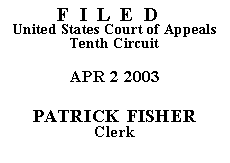

| UNITED STATES OF AMERICA, |
|
Defendant Jose Luis Sanchez-Llamas appeals the district court's determination that he was a minor, rather than a minimal, participant in the drug transaction for which he was convicted and its corresponding reduction of his sentence by two, rather than four, levels. We exercise jurisdiction pursuant to 28 U.S.C. § 1291 and 18 U.S.C. § 3742 and AFFIRM. We dismiss without prejudice defendant's ineffective assistance of counsel claim.
The district court's determination as to whether Mr. Sanchez-Llamas was a minor or a minimal participant in the drug sale at issue is a factual one, reviewable for clear error. United States v. Garcia, 182 F.3d 1165, 1175 (10th Cir. 1999). Even clear error review is inappropriate, however, when defendant fails to preserve the issue on appeal. United States v. Richardson, 86 F.3d 1537, 1554 (10th Cir. 1996) ("'Failure to object to a fact in a presentence report, or failure to object at the [sentencing] hearing, acts as an admission of fact.'") (quoting United States v. Deninno, 29 F.3d 572, 580 (10th Cir. 1994)). A narrow exception to the general waiver rule permits appellate review where the district court's reliance on the Presentence Report ("PSR") is itself plain error. See United States v. Ivy, 83 F.3d 1266, 1297 (10th Cir. 1996). To constitute plain error, a district court's decision must be "'particularly egregious,' as well as 'obvious and substantial.'" United States v. Saucedo, 950 F.2d 1508, 1511 (10th Cir. 1991) (citations and quotations omitted).
The PSR relied upon by the district court indicated that, given his degree of participation in the transaction, Mr. Sanchez-Llamas was a minor participant eligible for a two-level reduction in sentence, rather than the four-level reduction appropriate for a minimal participant. It is undisputed that Mr. Sanchez-Llamas failed to object to the PSR's characterization of his role in the offense. As a result, Mr. Sanchez-Llamas waived the issue on appeal.
Mr. Sanchez-Llamas' argument therefore depends upon the narrow exception permitting appellate review of a district court's determination as to the defendant's level of participation in the offense even after defendant waives the issue at trial by failing to object to facts in the PSR. For us to apply this exception, we must find that the district court's reliance upon the PSR--to which the defendant himself did not object--was plain error. Ivy, 83 F.3d at 1297. If the district court erred, we cannot say that its error was either obvious, egregious, or substantial, Saucedo, 950 F.2d at 1511, especially in light of the fact that defendant's failure to object to the PSR at trial prevented the development of a factual record upon which to base such a determination, cf. United States v. Easter, 981 F.2d 1549, 1556 (10th Cir. 1992) ("plain error review is not appropriate when the alleged error involves resolution of factual disputes"). We hold, therefore, that Mr. Sanchez-Llamas waived the issue of whether he was a minor or a minimal participant in the offense and that the narrow exception allowing appellate review after such waiver does not apply.
Mr. Sanchez-Llamas argues in the alternative that his trial counsel was ineffective for failing to request the four-level reduction in sentence to which Mr. Sanchez-Llamas now argues he was entitled.
We do not ordinarily consider ineffectiveness claims on direct appeal because the record on direct appeal is insufficiently developed as to "the tactical reasons for trial counsel's decisions, the extent of trial counsel's alleged deficiencies, and the asserted prejudicial impact on the outcome of the trial." Beaulieu v. United States, 930 F.2d 805, 807 (10th Cir. 1991), overruled in part by United States v. Galloway, 56 F.3d 1239, 1241 (10th Cir. 1995). Such claims are more appropriately brought by collateral attack under 28 U.S.C. § 2255 because that mechanism permits the determination of these essential facts. Galloway, 56 F.3d at 1240. We dismiss virtually all such claims without prejudice to permit both the appellant and his or her trial counsel to develop the appropriate facts for consideration by the district court. See id. at 1240.
For these reasons, and despite the fact that both the government and Mr. Sanchez-Llamas urge us to reach the merits of his ineffective assistance claim, we dismiss it without prejudice.
ENTERED FOR THE COURT,
Deanell Reece Tacha
Chief Circuit Judge
*.This order and judgment is not binding precedent, except under the doctrines of law of the case, res judicata, and collateral estoppel. This court generally disfavors the citation of orders and judgments; nevertheless, an order and judgment may be cited under the terms and conditions of 10th Cir. R. 36.3.